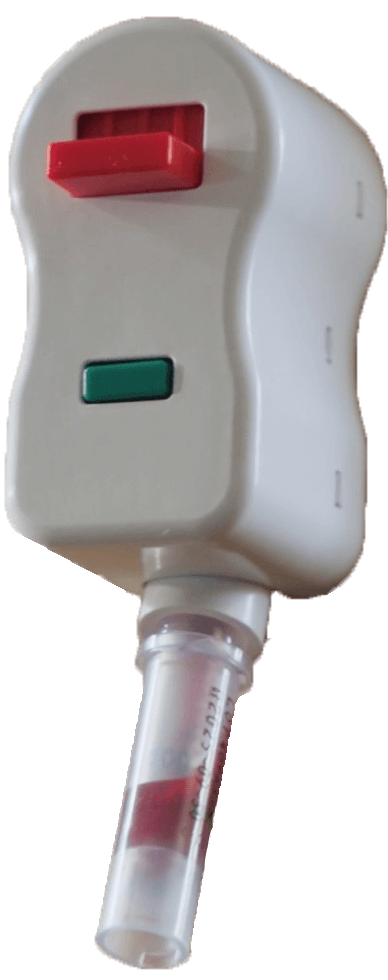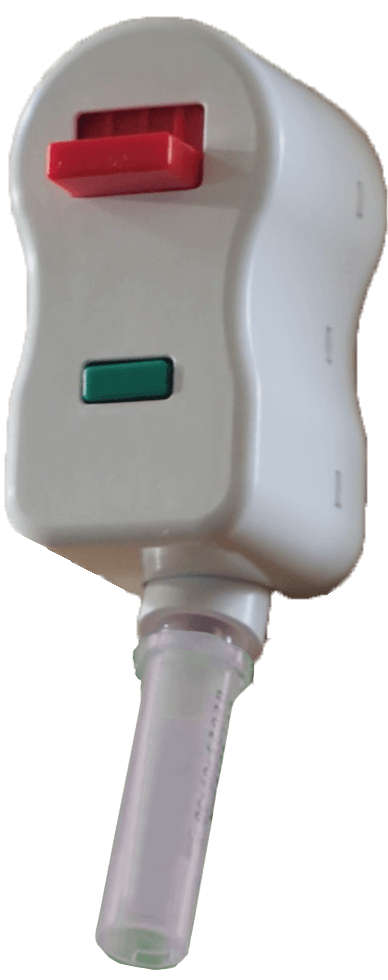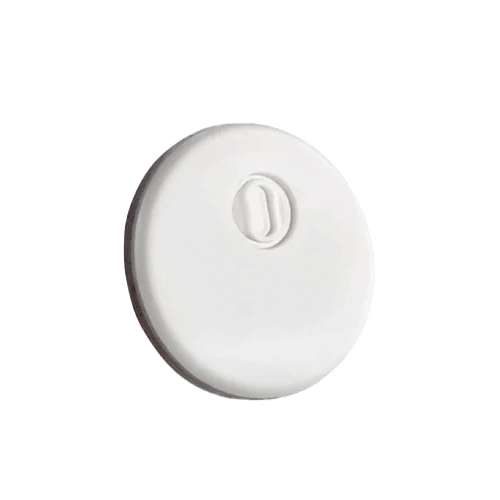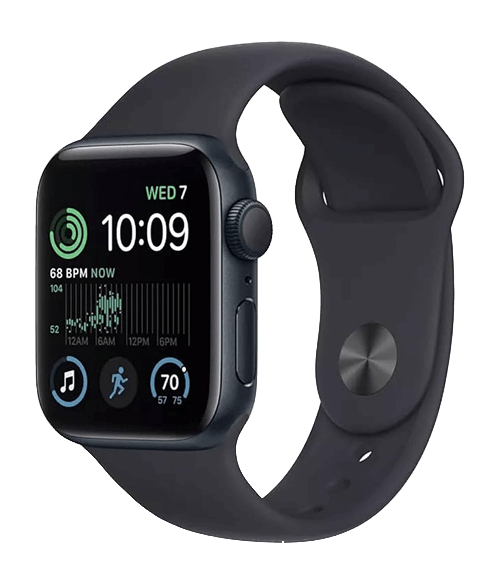I'm Sai, your free Health Coach
Click or drag file to upload blood test results
Welcome to Healthcare 3.0
Sai was created to make health optimization accessible and personalized.




(available with membership)




Use Sauna Sessions
Improves metabolic health
Relevant Biomarkers
Manage Stress & Sleep
Improves metabolic health
Relevant Biomarkers
Eat Soluble Fiber
Improves heart health
Relevant Biomarkers
Improve Testosterone Levels
Improves hormonal health
Relevant Biomarkers
Schedule Rest Days
Improves hormonal health
Relevant Biomarkers
Add Calcium Foods
Improves nutritional health
Relevant Biomarkers
Strength Training for Lower Ferritin
Improves nutritional health
Relevant Biomarkers
Add Iron-Rich Foods
Improves nutritional health
Relevant Biomarkers
Increase Lycopene Intake
Improves inflammation & heart health
Relevant Biomarkers
Boost Vitamin B2
Improves thyroid health
Relevant Biomarkers
Adopt Anti-Inflammatory Diet
Improves inflammation
Relevant Biomarkers
Caloric Restriction for Liver Health
Improves liver health
Relevant Biomarkers
Use Sauna Sessions
Improves metabolic health
Relevant Biomarkers
Manage Stress & Sleep
Improves metabolic health
Relevant Biomarkers
Eat Soluble Fiber
Improves heart health
Relevant Biomarkers
Improve Testosterone Levels
Improves hormonal health
Relevant Biomarkers
Schedule Rest Days
Improves hormonal health
Relevant Biomarkers
Add Calcium Foods
Improves nutritional health
Relevant Biomarkers
Strength Training for Lower Ferritin
Improves nutritional health
Relevant Biomarkers
Add Iron-Rich Foods
Improves nutritional health
Relevant Biomarkers
Increase Lycopene Intake
Improves inflammation & heart health
Relevant Biomarkers
Boost Vitamin B2
Improves thyroid health
Relevant Biomarkers
Adopt Anti-Inflammatory Diet
Improves inflammation
Relevant Biomarkers
Caloric Restriction for Liver Health
Improves liver health
Relevant Biomarkers
Use Sauna Sessions
Improves metabolic health
Relevant Biomarkers
Manage Stress & Sleep
Improves metabolic health
Relevant Biomarkers
Eat Soluble Fiber
Improves heart health
Relevant Biomarkers
Improve Testosterone Levels
Improves hormonal health
Relevant Biomarkers
Schedule Rest Days
Improves hormonal health
Relevant Biomarkers
Add Calcium Foods
Improves nutritional health
Relevant Biomarkers
Strength Training for Lower Ferritin
Improves nutritional health
Relevant Biomarkers
Add Iron-Rich Foods
Improves nutritional health
Relevant Biomarkers
Increase Lycopene Intake
Improves inflammation & heart health
Relevant Biomarkers
Boost Vitamin B2
Improves thyroid health
Relevant Biomarkers
Adopt Anti-Inflammatory Diet
Improves inflammation
Relevant Biomarkers
Caloric Restriction for Liver Health
Improves liver health
Relevant Biomarkers
Use Sauna Sessions
Improves metabolic health
Relevant Biomarkers
Manage Stress & Sleep
Improves metabolic health
Relevant Biomarkers
Eat Soluble Fiber
Improves heart health
Relevant Biomarkers
Improve Testosterone Levels
Improves hormonal health
Relevant Biomarkers
Schedule Rest Days
Improves hormonal health
Relevant Biomarkers
Add Calcium Foods
Improves nutritional health
Relevant Biomarkers
Strength Training for Lower Ferritin
Improves nutritional health
Relevant Biomarkers
Add Iron-Rich Foods
Improves nutritional health
Relevant Biomarkers
Increase Lycopene Intake
Improves inflammation & heart health
Relevant Biomarkers
Boost Vitamin B2
Improves thyroid health
Relevant Biomarkers
Adopt Anti-Inflammatory Diet
Improves inflammation
Relevant Biomarkers
Caloric Restriction for Liver Health
Improves liver health
Relevant Biomarkers
Use Sauna Sessions
Improves metabolic health
Relevant Biomarkers
Manage Stress & Sleep
Improves metabolic health
Relevant Biomarkers
Eat Soluble Fiber
Improves heart health
Relevant Biomarkers
Improve Testosterone Levels
Improves hormonal health
Relevant Biomarkers
Schedule Rest Days
Improves hormonal health
Relevant Biomarkers
Add Calcium Foods
Improves nutritional health
Relevant Biomarkers
Strength Training for Lower Ferritin
Improves nutritional health
Relevant Biomarkers
Add Iron-Rich Foods
Improves nutritional health
Relevant Biomarkers
Increase Lycopene Intake
Improves inflammation & heart health
Relevant Biomarkers
Boost Vitamin B2
Improves thyroid health
Relevant Biomarkers
Adopt Anti-Inflammatory Diet
Improves inflammation
Relevant Biomarkers
Caloric Restriction for Liver Health
Improves liver health
Relevant Biomarkers
Get Started
Click or drag any blood test results here to upload
Once you upload your report, we'll extract the results and generate a personalized analysis. You can continue chatting with Sai in the portal with full context of your health data.
Your Privacy First. Always.
Enterprise-grade security
Our servers meet or exceed all applicable data protection and privacy requirements. Your sensitive information is safeguarded by state-of-the-art security measures.
Zero Data Selling Policy
We have a strict no-sell policy for your personal information. Your data remains yours, period.
Complete Data Control
Delete your personal information from our servers at any time. We respect your right to data ownership and provide easy-to-use tools for data management.
Backed By Leading Experts in Health Optimization

Tsolmon Tsogbayar, MD
Health Programs Lead, Health Innovation
Dr. Tsogbayar leverages her clinical expertise to develop innovative health solutions and evidence-based coaching. Dr. Tsogbayar previously practiced as a physician with a comprehensive training background, developing specialized expertise in cardiology and emergency medicine after gaining experience in primary care, allergy & immunology, internal medicine, and general surgery.
She earned her medical degree from Imperial College London, where she also completed her MSc in Human Molecular Genetics after obtaining a BSc in Biochemistry from Queen Mary University of London. Her academic research includes significant work in developmental cardiovascular genetics, with her thesis publication contributing to the understanding of genetic modifications on embryonic cardiovascular development.

Pavel Korecky, MD
Director of Product Operations
Director of Product Operations at SiPhox Health with a background in medicine and a passion for health optimization. Experienced in leading software and clinical development teams, developing MVPs, contributing to patents, and launching health-related products.
Skilled in product operations, technical and non-technical product development, and agile project management, with expertise in diagnostic and medical technology.

Paul Thompson, MD
Advisor
Paul D. Thompson is Chief of Cardiology Emeritus of Hartford Hospital and Professor Emeritus at University of Connecticut Medical School. He has authored over 500 scientific articles on cardiovascular risk factors, the effects of exercise, and beyond. He received National Institutes of Health’s (NIH) Preventive Cardiology Academic Award, and has received NIH funding for multiple studies.
Dr. Thompson’s interests in exercise, general cardiology and sports cardiology originated from his own distance running: he qualified for the 1972 Olympic Marathon Trials as a 3rd year medical student and finished 16th in the 1976 Boston Marathon. Dr. Thompson publishes a blog 500 Rules of Cardiology where he shares lessons and anecdotes that he has learned over his extensive career as a physician, researcher and teacher.

Ben Bikman, PhD
Advisor
Benjamin Bikman earned his Ph.D. in Bioenergetics and was a postdoctoral fellow with the Duke-National University of Singapore in metabolic disorders. Currently, his professional focus as a scientist and professor (Brigham Young University) is to better understand the role of elevated insulin and nutrient metabolism in regulating obesity, diabetes, and dementia.
In addition to his academic pursuits, Dr. Bikman is the author of Why We Get Sick and How Not To Get Sick.

Tash Milinkovic, MD
Health Programs Lead, Heart & Metabolic
Dr. Natasha Milinkovic is part of the clinical product team at SiPhox Health, having graduated from the University of Bristol Medical School. Her medical career includes rotations across medical and surgical specialties, with specialized research in vascular surgery, focusing on recovery and post-operative pain outcomes. Dr. Milinkovic built her expertise in emergency medicine as a clinical fellow at a major trauma center before practicing at a central London teaching hospital throughout the pandemic.
She has contributed to global health initiatives, implementing surgical safety standards and protocols across rural Uganda. Dr. Milinkovic initially joined SiPhox Health to spearhead the health coaching initiative and has been a key contributor in the development and launch of the Heart and Metabolic program. She is passionate about addressing health disparities by building scalable healthcare solutions.

Tsolmon Tsogbayar, MD
Health Programs Lead, Health Innovation
Dr. Tsogbayar leverages her clinical expertise to develop innovative health solutions and evidence-based coaching. Dr. Tsogbayar previously practiced as a physician with a comprehensive training background, developing specialized expertise in cardiology and emergency medicine after gaining experience in primary care, allergy & immunology, internal medicine, and general surgery.
She earned her medical degree from Imperial College London, where she also completed her MSc in Human Molecular Genetics after obtaining a BSc in Biochemistry from Queen Mary University of London. Her academic research includes significant work in developmental cardiovascular genetics, with her thesis publication contributing to the understanding of genetic modifications on embryonic cardiovascular development.

Pavel Korecky, MD
Director of Product Operations
Director of Product Operations at SiPhox Health with a background in medicine and a passion for health optimization. Experienced in leading software and clinical development teams, developing MVPs, contributing to patents, and launching health-related products.
Skilled in product operations, technical and non-technical product development, and agile project management, with expertise in diagnostic and medical technology.

Paul Thompson, MD
Advisor
Paul D. Thompson is Chief of Cardiology Emeritus of Hartford Hospital and Professor Emeritus at University of Connecticut Medical School. He has authored over 500 scientific articles on cardiovascular risk factors, the effects of exercise, and beyond. He received National Institutes of Health’s (NIH) Preventive Cardiology Academic Award, and has received NIH funding for multiple studies.
Dr. Thompson’s interests in exercise, general cardiology and sports cardiology originated from his own distance running: he qualified for the 1972 Olympic Marathon Trials as a 3rd year medical student and finished 16th in the 1976 Boston Marathon. Dr. Thompson publishes a blog 500 Rules of Cardiology where he shares lessons and anecdotes that he has learned over his extensive career as a physician, researcher and teacher.

Ben Bikman, PhD
Advisor
Benjamin Bikman earned his Ph.D. in Bioenergetics and was a postdoctoral fellow with the Duke-National University of Singapore in metabolic disorders. Currently, his professional focus as a scientist and professor (Brigham Young University) is to better understand the role of elevated insulin and nutrient metabolism in regulating obesity, diabetes, and dementia.
In addition to his academic pursuits, Dr. Bikman is the author of Why We Get Sick and How Not To Get Sick.

Tash Milinkovic, MD
Health Programs Lead, Heart & Metabolic
Dr. Natasha Milinkovic is part of the clinical product team at SiPhox Health, having graduated from the University of Bristol Medical School. Her medical career includes rotations across medical and surgical specialties, with specialized research in vascular surgery, focusing on recovery and post-operative pain outcomes. Dr. Milinkovic built her expertise in emergency medicine as a clinical fellow at a major trauma center before practicing at a central London teaching hospital throughout the pandemic.
She has contributed to global health initiatives, implementing surgical safety standards and protocols across rural Uganda. Dr. Milinkovic initially joined SiPhox Health to spearhead the health coaching initiative and has been a key contributor in the development and launch of the Heart and Metabolic program. She is passionate about addressing health disparities by building scalable healthcare solutions.

Tsolmon Tsogbayar, MD
Health Programs Lead, Health Innovation
Dr. Tsogbayar leverages her clinical expertise to develop innovative health solutions and evidence-based coaching. Dr. Tsogbayar previously practiced as a physician with a comprehensive training background, developing specialized expertise in cardiology and emergency medicine after gaining experience in primary care, allergy & immunology, internal medicine, and general surgery.
She earned her medical degree from Imperial College London, where she also completed her MSc in Human Molecular Genetics after obtaining a BSc in Biochemistry from Queen Mary University of London. Her academic research includes significant work in developmental cardiovascular genetics, with her thesis publication contributing to the understanding of genetic modifications on embryonic cardiovascular development.

Pavel Korecky, MD
Director of Product Operations
Director of Product Operations at SiPhox Health with a background in medicine and a passion for health optimization. Experienced in leading software and clinical development teams, developing MVPs, contributing to patents, and launching health-related products.
Skilled in product operations, technical and non-technical product development, and agile project management, with expertise in diagnostic and medical technology.

Paul Thompson, MD
Advisor
Paul D. Thompson is Chief of Cardiology Emeritus of Hartford Hospital and Professor Emeritus at University of Connecticut Medical School. He has authored over 500 scientific articles on cardiovascular risk factors, the effects of exercise, and beyond. He received National Institutes of Health’s (NIH) Preventive Cardiology Academic Award, and has received NIH funding for multiple studies.
Dr. Thompson’s interests in exercise, general cardiology and sports cardiology originated from his own distance running: he qualified for the 1972 Olympic Marathon Trials as a 3rd year medical student and finished 16th in the 1976 Boston Marathon. Dr. Thompson publishes a blog 500 Rules of Cardiology where he shares lessons and anecdotes that he has learned over his extensive career as a physician, researcher and teacher.

Ben Bikman, PhD
Advisor
Benjamin Bikman earned his Ph.D. in Bioenergetics and was a postdoctoral fellow with the Duke-National University of Singapore in metabolic disorders. Currently, his professional focus as a scientist and professor (Brigham Young University) is to better understand the role of elevated insulin and nutrient metabolism in regulating obesity, diabetes, and dementia.
In addition to his academic pursuits, Dr. Bikman is the author of Why We Get Sick and How Not To Get Sick.

Tash Milinkovic, MD
Health Programs Lead, Heart & Metabolic
Dr. Natasha Milinkovic is part of the clinical product team at SiPhox Health, having graduated from the University of Bristol Medical School. Her medical career includes rotations across medical and surgical specialties, with specialized research in vascular surgery, focusing on recovery and post-operative pain outcomes. Dr. Milinkovic built her expertise in emergency medicine as a clinical fellow at a major trauma center before practicing at a central London teaching hospital throughout the pandemic.
She has contributed to global health initiatives, implementing surgical safety standards and protocols across rural Uganda. Dr. Milinkovic initially joined SiPhox Health to spearhead the health coaching initiative and has been a key contributor in the development and launch of the Heart and Metabolic program. She is passionate about addressing health disparities by building scalable healthcare solutions.

Tsolmon Tsogbayar, MD
Health Programs Lead, Health Innovation
Dr. Tsogbayar leverages her clinical expertise to develop innovative health solutions and evidence-based coaching. Dr. Tsogbayar previously practiced as a physician with a comprehensive training background, developing specialized expertise in cardiology and emergency medicine after gaining experience in primary care, allergy & immunology, internal medicine, and general surgery.
She earned her medical degree from Imperial College London, where she also completed her MSc in Human Molecular Genetics after obtaining a BSc in Biochemistry from Queen Mary University of London. Her academic research includes significant work in developmental cardiovascular genetics, with her thesis publication contributing to the understanding of genetic modifications on embryonic cardiovascular development.

Pavel Korecky, MD
Director of Product Operations
Director of Product Operations at SiPhox Health with a background in medicine and a passion for health optimization. Experienced in leading software and clinical development teams, developing MVPs, contributing to patents, and launching health-related products.
Skilled in product operations, technical and non-technical product development, and agile project management, with expertise in diagnostic and medical technology.

Paul Thompson, MD
Advisor
Paul D. Thompson is Chief of Cardiology Emeritus of Hartford Hospital and Professor Emeritus at University of Connecticut Medical School. He has authored over 500 scientific articles on cardiovascular risk factors, the effects of exercise, and beyond. He received National Institutes of Health’s (NIH) Preventive Cardiology Academic Award, and has received NIH funding for multiple studies.
Dr. Thompson’s interests in exercise, general cardiology and sports cardiology originated from his own distance running: he qualified for the 1972 Olympic Marathon Trials as a 3rd year medical student and finished 16th in the 1976 Boston Marathon. Dr. Thompson publishes a blog 500 Rules of Cardiology where he shares lessons and anecdotes that he has learned over his extensive career as a physician, researcher and teacher.

Ben Bikman, PhD
Advisor
Benjamin Bikman earned his Ph.D. in Bioenergetics and was a postdoctoral fellow with the Duke-National University of Singapore in metabolic disorders. Currently, his professional focus as a scientist and professor (Brigham Young University) is to better understand the role of elevated insulin and nutrient metabolism in regulating obesity, diabetes, and dementia.
In addition to his academic pursuits, Dr. Bikman is the author of Why We Get Sick and How Not To Get Sick.

Tash Milinkovic, MD
Health Programs Lead, Heart & Metabolic
Dr. Natasha Milinkovic is part of the clinical product team at SiPhox Health, having graduated from the University of Bristol Medical School. Her medical career includes rotations across medical and surgical specialties, with specialized research in vascular surgery, focusing on recovery and post-operative pain outcomes. Dr. Milinkovic built her expertise in emergency medicine as a clinical fellow at a major trauma center before practicing at a central London teaching hospital throughout the pandemic.
She has contributed to global health initiatives, implementing surgical safety standards and protocols across rural Uganda. Dr. Milinkovic initially joined SiPhox Health to spearhead the health coaching initiative and has been a key contributor in the development and launch of the Heart and Metabolic program. She is passionate about addressing health disparities by building scalable healthcare solutions.

Tsolmon Tsogbayar, MD
Health Programs Lead, Health Innovation
Dr. Tsogbayar leverages her clinical expertise to develop innovative health solutions and evidence-based coaching. Dr. Tsogbayar previously practiced as a physician with a comprehensive training background, developing specialized expertise in cardiology and emergency medicine after gaining experience in primary care, allergy & immunology, internal medicine, and general surgery.
She earned her medical degree from Imperial College London, where she also completed her MSc in Human Molecular Genetics after obtaining a BSc in Biochemistry from Queen Mary University of London. Her academic research includes significant work in developmental cardiovascular genetics, with her thesis publication contributing to the understanding of genetic modifications on embryonic cardiovascular development.

Pavel Korecky, MD
Director of Product Operations
Director of Product Operations at SiPhox Health with a background in medicine and a passion for health optimization. Experienced in leading software and clinical development teams, developing MVPs, contributing to patents, and launching health-related products.
Skilled in product operations, technical and non-technical product development, and agile project management, with expertise in diagnostic and medical technology.

Paul Thompson, MD
Advisor
Paul D. Thompson is Chief of Cardiology Emeritus of Hartford Hospital and Professor Emeritus at University of Connecticut Medical School. He has authored over 500 scientific articles on cardiovascular risk factors, the effects of exercise, and beyond. He received National Institutes of Health’s (NIH) Preventive Cardiology Academic Award, and has received NIH funding for multiple studies.
Dr. Thompson’s interests in exercise, general cardiology and sports cardiology originated from his own distance running: he qualified for the 1972 Olympic Marathon Trials as a 3rd year medical student and finished 16th in the 1976 Boston Marathon. Dr. Thompson publishes a blog 500 Rules of Cardiology where he shares lessons and anecdotes that he has learned over his extensive career as a physician, researcher and teacher.

Ben Bikman, PhD
Advisor
Benjamin Bikman earned his Ph.D. in Bioenergetics and was a postdoctoral fellow with the Duke-National University of Singapore in metabolic disorders. Currently, his professional focus as a scientist and professor (Brigham Young University) is to better understand the role of elevated insulin and nutrient metabolism in regulating obesity, diabetes, and dementia.
In addition to his academic pursuits, Dr. Bikman is the author of Why We Get Sick and How Not To Get Sick.

Tash Milinkovic, MD
Health Programs Lead, Heart & Metabolic
Dr. Natasha Milinkovic is part of the clinical product team at SiPhox Health, having graduated from the University of Bristol Medical School. Her medical career includes rotations across medical and surgical specialties, with specialized research in vascular surgery, focusing on recovery and post-operative pain outcomes. Dr. Milinkovic built her expertise in emergency medicine as a clinical fellow at a major trauma center before practicing at a central London teaching hospital throughout the pandemic.
She has contributed to global health initiatives, implementing surgical safety standards and protocols across rural Uganda. Dr. Milinkovic initially joined SiPhox Health to spearhead the health coaching initiative and has been a key contributor in the development and launch of the Heart and Metabolic program. She is passionate about addressing health disparities by building scalable healthcare solutions.